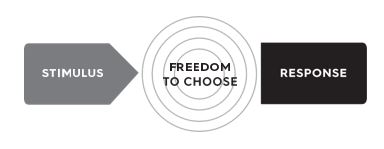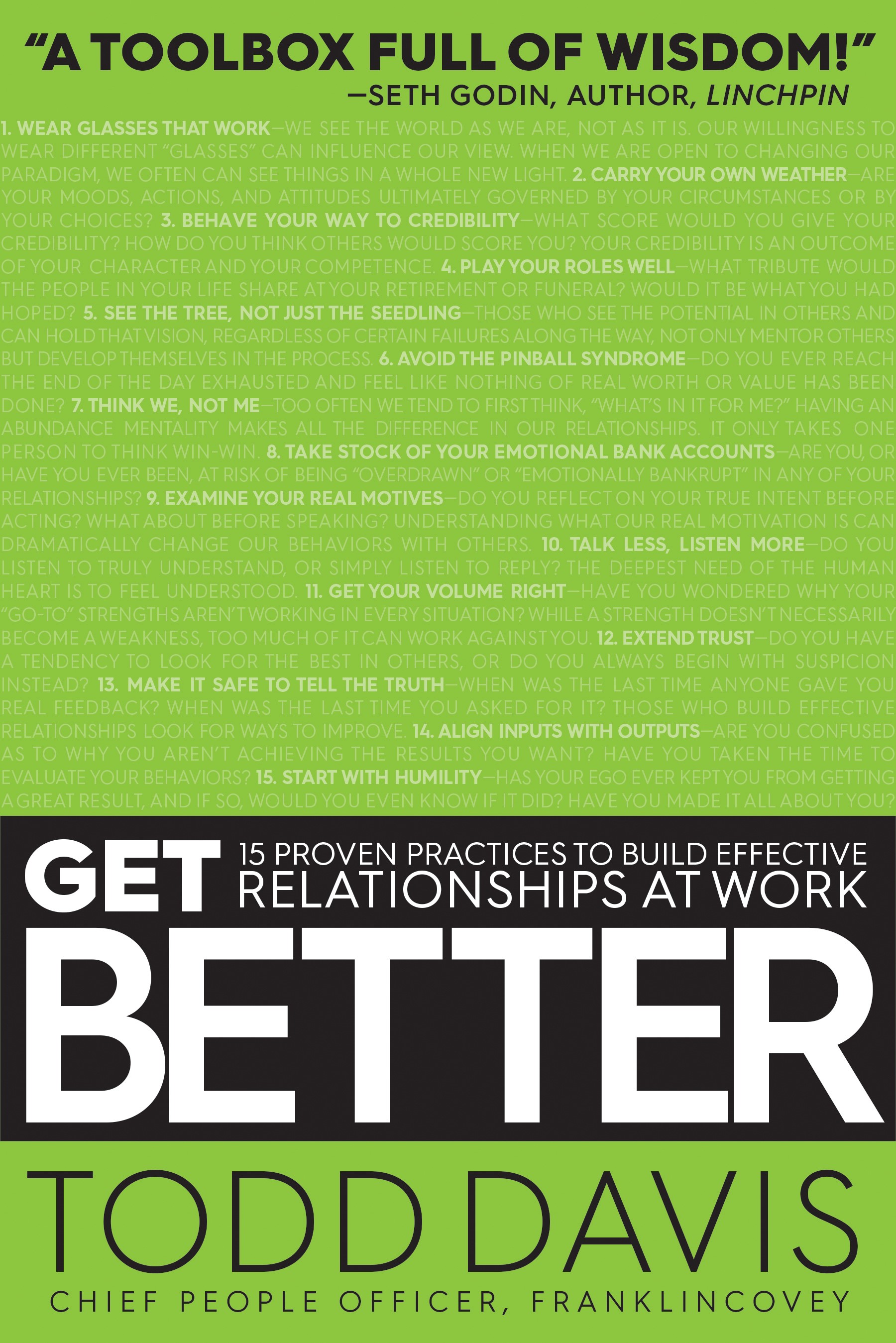We are never without choice. That doesn’t mean things don’t happen outside of our control, or that our choices can’t be severely limited. As immortalized in the words of Viktor Frankl, Holocaust survivor and author of Man’s Search for Meaning, “Everything can be taken from a man but one thing: the last of the human freedoms—to choose one’s attitude in any given set of circumstances, to choose one’s own way.”
Related: Why Your Attitude Is Everything
A colleague once shared the story of a memorable professor he’d had as an undergrad. Every day, this short and somewhat rotund man would walk across the college campus, coffee in hand, seemingly incapable of being in anything but a good mood. He would greet students warmly, often stopping to talk with them about their day and was one of the most popular professors on campus. One morning a spring thunderstorm broke over the school and, having misplaced his umbrella, the professor still took his usual walk to class. When he arrived, he remained as cheerful as ever as the students peeled off their various layers of wet gear, somewhat annoyed at the unexpected downpour. One student, noticing the professor’s ever-pleasant disposition but soaked shirt, remarked, “Hey Chuck, aren’t you at all bothered by the rain?” Chuck smiled in response.
“Sure, but I benefit from my lack of height—it takes longer for the rain to reach me.”
Not a single person on the campus had any control over the weather. Most reacted to the unwelcomed moisture by allowing their moods or the external nature of the storm negatively affect them.
They complained about the sudden drop in temperature or that they got a bit wet. They allowed the darkening clouds to dictate their mood, longing for the sun to make an appearance and lift their spirits. It’s easy to feel like a victim with such thoughts, surrendering to the belief that we’re helplessly subject to the external world. And when others are the source of our dismay and helplessness, it’s easy to cast blame, level accusations and adopt a victim mindset and language.
Related: What Happened When I Didn’t Complain for 30 Days
The professor made a different choice. Rather than react to the weather outside, he carried his own. He looked inward instead of outward. This happy teacher decided how he was going to think and feel based on what he valued, regardless of whatever storm happened to break. This choice is a defining characteristic between those who choose to carry their own weather and those who don’t—reacting to the external world as a victim or staying true to what you ultimately value. In the case of our short-statured professor, he valued the opportunity to come to class and do what he loved, to create a positive environment where his students could learn, and to plant educational seeds that might bear fruit for years to come. What was a little rain compared to that?
The esteemed Bishop Fulton J. Sheen, well known for his early radio and TV work, expressed it this way: “Each of us makes his own weather—determines the color of the skies in the emotional universe which he inhabits.”
At the foundation of carrying your own weather is the ability to pause between stimulus and response. The earliest humans learned “fight or flight” as a way of reacting to potentially life-threatening situations. Fast-forward to the modern world. For most of us, the challenge of daily survival is no longer the standard. Our stresses now come in different, less life-threatening forms. Yet, external stimuli naturally cause us to react quickly, and sometimes inappropriately.
Thankfully, we have more than just the reactive part of our brain to work with. As human beings, we share the unique trait of self-awareness—the ability to see and evaluate our own thoughts. It gives us the capability to pause, step back and see ourselves along with the paradigms we adopt and use. In effect, it gives us the freedom to choose our response proactively.

Carrying one’s weather can express itself in many ways: from the simple choice to keep a pleasant or professional disposition, to not allowing the events around us to spin the needle of our moral compass. But at the heart of it is always a choice, and that power can never be surrendered unless we allow it.
Related: 9 Mood-Boosting Ways to Inject Positivity in Your Life

The content in this article is from Get Better: 15 Proven Practices to Build Effective Relationships at Work, releasing November 7 and authored by FranklinCovey’s Chief People Officer, Todd Davis. Pre-order the book at https://getbetterbook.com/ to receive a complimentary set of Get Better practice cards to improve your relationships. Davis is a keynote speaker at SUCCESS Live, September 8-9. To register, visit https://www.successliveevent.com/.





